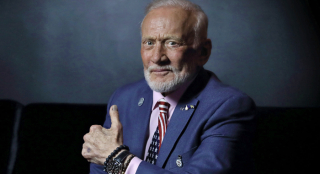 Even when planning for competency issues is in place, there can still be problems. When a highly-intelligent public figure makes decisions his kids thinks are wrong, who is right?
Even when planning for competency issues is in place, there can still be problems. When a highly-intelligent public figure makes decisions his kids thinks are wrong, who is right?
The case of Buzz Aldrin, who is taking his son and daughter to court on charges of fraud, conspiracy and exploitation of the elderly, is a tough one. He’s accusing his adult children and his longtime manager of slandering him, by telling others he has dementia and Alzheimer’s diseases, using his money for their own gain and undermining romantic relationships.
The 88-year-old astronaut’s lawsuit illustrates the reason it's important for families to plan ahead for an aging parent. However, cases like Aldrin's can be hard, because it can be difficult to determine when someone has a deteriorating mental capacity, explains Good 4 Utah in the recent article, “Buzz Aldrin lawsuit shows need to plan for aging parents.”
 Houston Estate Planning and Elder Law Attorney Blog
Houston Estate Planning and Elder Law Attorney Blog




